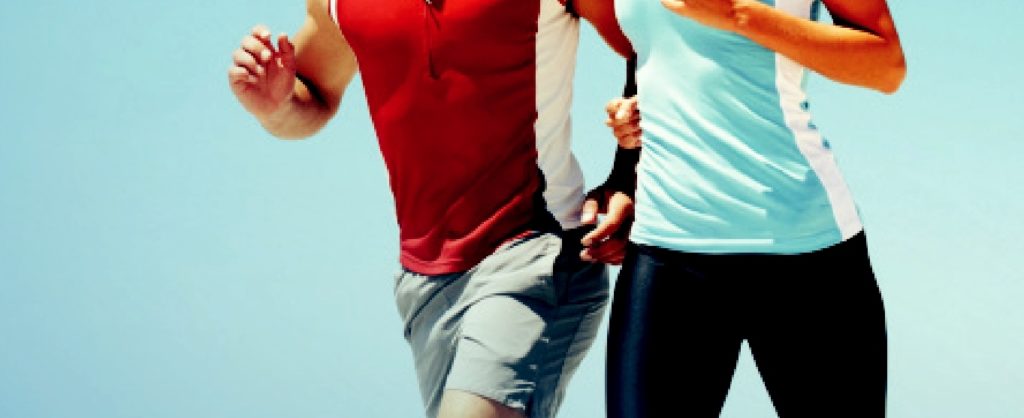Australians are sitting down and lying around so much, experts have doubled the recommended amount of exercise and say we need to get up out of our chairs – even if we already do “enough” exercise.
More and more studies are finding links between “sedentary behaviour” and weight gain, type 2 diabetes, poor muscle tone, heart disease and dying earlier. The new guidelines are the first to explicitly address our love of lounging and our habit of sitting at work.
The latest advice is to ‘mix and match’ a range of activities, and to think of exercise as simple habits that can be built into your day, rather than organised sport or structured activities like going to the gym.
What are the new guidelines?
The Government’s new guidelines are called the Physical Activity and Sedentary Behaviour Guidelines.
Doing any physical activity is better than doing none. If you currently do no physical activity, start by doing some, and gradually build up to the recommended amount.
Accumulate 150 to 300 minutes of moderate intensity physical activity or 75 to 150 minutes of vigorous intensity physical activity, or an equivalent combination of both moderate and vigorous activities, each week.
Be active on most, preferably all, days every week.
Do muscle strengthening activities on at least two days each week.
Minimise the amount of time spent in prolonged sitting. Break up long periods of sitting as often as possible.
What is ‘sedentary behaviour’?
Being ‘sedentary’ means sitting or lying down for long periods (not including sleeping). So, a person can do enough physical activity to meet the guidelines and still be considered sedentary if they spend a large amount of their day sitting or lying down at work, at home, for study, for travel or during their leisure time.
ABC Health and Wellbeing’s Claudine Ryan explains:
Experts say we’re sedentary on average for seven to 10 hours a day (and this doesn’t include our time spent sleeping). Even if you are meeting, or exceeding, the recommended 60 minutes a day of moderate intensity physical activity, you can still be considered sedentary. (This group of people is sometimes referred to as ‘active couch potatoes’.)
While researchers are still trying to understand exactly why sedentary behaviour has such a negative effect on our health, it appears to be related to how our bodies process fats and sugars. There are enzymes involved in this process that are released when certain muscles contract during standing. When you sit for prolonged periods the production and activity of these enzymes appears to slow down.
Q&A: Putting the guidelines into practice.
Professor Wendy Brown from the University of Queensland’s School of Human Movement Studies was lead author on the report that led to the new guidelines. We asked her a few questions about the reasons for the new recommendations, and how she sticks to them in her own life.
Why have you included ‘sedentary behaviour’ (sitting or lying down, except for sleeping) in the new guidelines?
Two main reasons: 1. There is growing evidence that too much sitting is bad for health. Specifically, when muscles are not moving, metabolites – especially fats – are not cleared from the bloodstream as quickly. High circulating levels of triglycerides – fats – eventually lead to metabolic illnesses like diabetes and cardiovascular disease. The latest evidence is that the effects worsen when daily sitting time is more than seven hours. 2. We figure that if people sit less, then unless they just stand still (unlikely) they will be moving, which is good for them! My personal view is: it is all about moving more.
If more than half of Australian adults are already not meeting the old guidelines, why have you recommended people do even more exercise than before?
Our latest data say that more than half of young adults meet the old guidelines and about half of mid-age people do. But on average Australians are gaining weight at the rate of about 500 grams per year, so we all need to move more. Increasing weight leads to diabetes, cardiovascular disease, some cancers, arthritis, back pain, the list goes on. And of the half who do meet the old guidelines, half of them do enough to meet the new ones. So if one quarter of the population can do this – it is not a big ask?
What sorts of things do you do when you’re at work, to avoid sitting for too long?
Can we compensate for a lot of sitting by doing a lot of exercise outside work hours?
Is it better to do big bursts of exercise, or to spread it out over the week?
How do you personally make sure you meet the exercise guidelines?
I bike to and from work – it is 15 minutes each way – so that gets to the lower end of the range (30 mins) on weekdays. Some days I ride to work the long way round – that is 45 mins, then 15 mins back or vice versa. So that’s the hour. I try to do that twice a week. If it is raining I walk instead – it takes 35 minutes each way. So I get my ‘base’ activity through transport to work. To be honest that is all I do some weeks when I am really busy at work (always!?) But I do try to do a longer ride at the weekend – maybe two hours, but I am very slow, and I try to fit in dancing classes whenever I can – maybe one evening or a weekend class each week.
In what ways does having more muscle benefit our bodies?
More muscle means all those metabolites – products of metabolism, for example fats – are taken up and used. The more we work, the bigger the muscles, the better we remove metabolites from the blood vessels. There are receptors on the muscle walls that are very important for regulating blood sugar and therefore preventing diabetes. No muscles equals no receptors equals increases in insulin and related endocrine problems.
Not everyone can get to the gym twice a week for a weights session. What sorts of things do you do for muscle strengthening?
Is it ok to be overweight if you’re fit or should you try get your weight down as well?
Being overweight (ie BMI 25-30) is fine if you are fit, but being obese (BMI 30+) is never healthy.
If you are overweight I would say focus on being fit and don’t worry about weight.
We hear that weight loss is mostly about diet, not exercise. Why should people focus so much on moving?
Have you ever had a time when you couldn’t do exercise, and if so how did you get back into it?
I travel a lot for work and often there are periods when I can’t ride my bike, so I try to walk as much as I can, wherever I can. Last year I was clocking more than 20,000 pedometer steps a day on a work trip by walking everywhere. It is difficult to move much on long-haul flights but many airports around the world have opportunities to walk miles between connecting flights, especially if you walk instead of taking the little train – if it is allowed, as it is Hong Kong for example.
Following illness or injury I mostly try to walk or swim to get back into things.
Originally posted abc.net.au 12th March 2014























